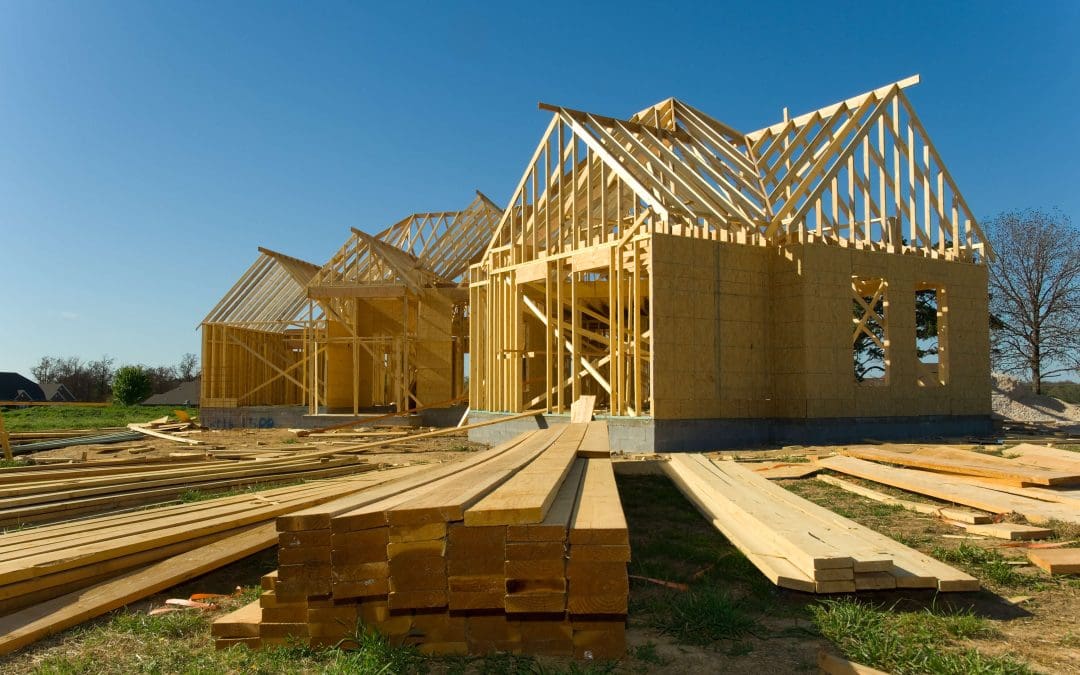Many buyers assume that a home inspection is unnecessary when purchasing a new construction home. After all, everything is brand new, built to modern standards, and comes with warranties. However, even newly constructed homes can have issues that may go unnoticed, leading to costly repairs. The assumption is that new construction equals perfection, but the reality is that no home is without its potential flaws. In this post, we’ll explain why a new construction inspection is a critical step in the home-buying process.
The Importance of a New Construction Inspection
New construction homes may look pristine but could hide significant issues beneath the surface. Builders often work under tight deadlines, and subcontractors may juggle multiple projects simultaneously. These pressures can lead to mistakes or oversights during the construction process. A new construction inspection confirms that your home is up to code and built to the highest quality and safety standards.
During a new construction inspection, the inspector will thoroughly examine the home from top to bottom, including the foundation, framing, electrical systems, plumbing, HVAC, and more. Their goal is to identify potential issues that could affect your investment and provide you with the peace of mind that your new home is safe and sound.
Common Issues Found in New Construction Homes
You might be surprised to learn that new construction homes can have as many, if not more, issues than older homes. Some of the most common problems found during inspections include:
Improperly Installed Systems: Even the best contractors make mistakes. Improperly installed HVAC systems could lead to inefficiency or even system failure. Electrical systems may also have been installed incorrectly, posing a safety hazard.
Structural Concerns: Issues with the foundation, framing, or roof can occur if the construction crew doesn’t follow proper procedures. These problems may not be immediately apparent but lead to structural damage over time.
Water Intrusion: Poorly installed windows, doors, or roofing materials allow water to seep into your home, leading to mold, rot, and other costly repairs.
Cosmetic Defects: While not as critical as structural or system issues, cosmetic defects like uneven flooring, poor paint jobs, or misaligned fixtures detract from the overall quality of your new home.
When to Schedule Your New Construction Inspection
Timing is critical when it comes to new construction inspections. Ideally, the inspection should occur at various stages of the construction process, including pre-drywall and final walkthrough inspections.
Pre-Drywall Inspection: This inspection occurs before the walls are closed, allowing the inspector to assess the structural components, electrical wiring, plumbing, and insulation. Identifying issues at this stage is crucial because once the drywall is up, certain problems become much more challenging and expensive to fix.
Final Walkthrough Inspection: This inspection happens just before you close on the home. It is your last opportunity to identify issues or defects before taking ownership. The inspector will check that all systems are functioning correctly and that any problems identified during the pre-drywall inspection have been addressed.
What to Do If Issues Are Found
If the inspection reveals issues, your builder should address them before you close on the home. Most builders offer a warranty on their work, so they are usually willing to make necessary repairs. However, having an inspection report gives you leverage and documentation to make sure all issues are resolved satisfactorily.
Working with a home inspector experienced in new construction inspections is essential. Their expertise will help you navigate the process and confirm that your new home meets the highest standards of quality and safety.
FAQs
Will an inspection delay the closing process?
An inspection won’t necessarily delay closing, but if significant issues are found, it might take time for the builder to address them. It’s better to take the time to ensure the home is in perfect condition before closing rather than dealing with problems after you move in.
Is a final walkthrough the same as a home inspection?
No, a final walkthrough is typically a visual check by the buyer to ensure that agreed-upon repairs have been made and that the home is in the expected condition. A home inspection is a more detailed and technical evaluation conducted by a professional inspector.
Can I rely on the builder’s inspection?
While builders often perform their own inspections, it’s crucial to have an independent inspection conducted by a third-party home inspector. The builder’s inspection may focus on meeting basic building codes, whereas an independent inspector works solely in your best interest, verifying that everything is up to standard.
Griffin Home Inspection provides comprehensive inspections to homebuyers and sellers in Sumter County, SC, and the surrounding areas. Contact us to request our services.

